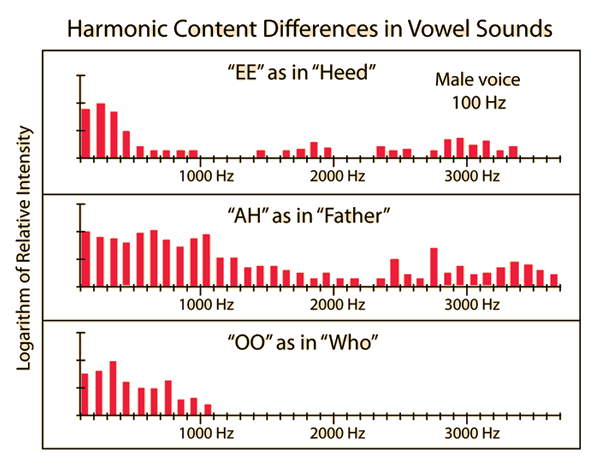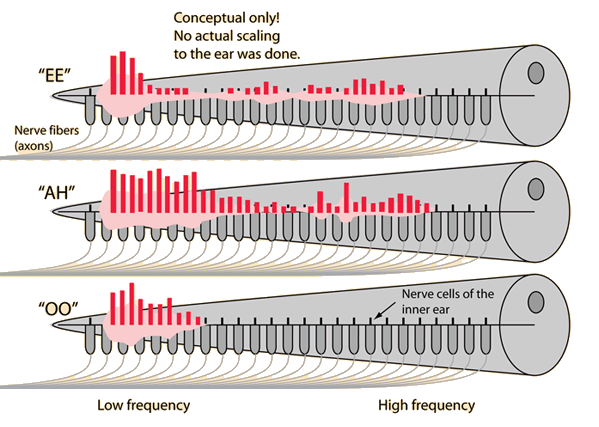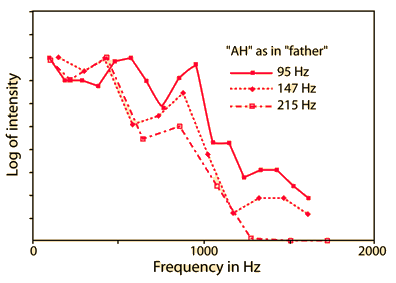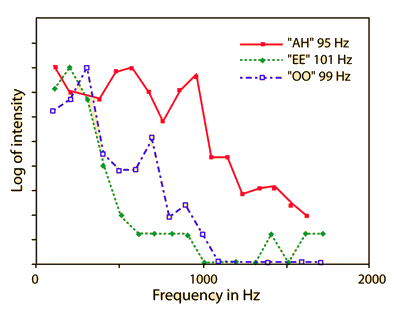
The illustration of the harmonic content of three vowels is just a single example and may not be typical - it just serves to illustrate that there are measurable differences in harmonic content. These differences can be detected by the ear as differences in timbre.
The data was taken with a MacScope and an inexpensive microphone. The harmonic amplitudes were squared to make them proportional to sound intensity and then the base 10 logarithm was taken to more nearly represent the ear's response to that sound intensity.
The place theory of pitch perception provides some indication of how the ear distinguishes the difference between vowel sounds. Since different frequencies excite the basilar membrane of the inner ear at different locations, this model would indicate that the illustrated vowel sounds would indeed produce distinctly different patterns of excitation in the inner ear. The ear is seen to be a sound analyzer which is capable of detecting very subtle differences in sound timbre.
| Harmonic content | Ear's detection of harmonic content |
| Examples of spectral plots of vowel sounds |
| Vowel plots vs time and frequency |
Place theory concepts
Hearing concepts
Voice concepts
| HyperPhysics***** Sound | R Nave |


